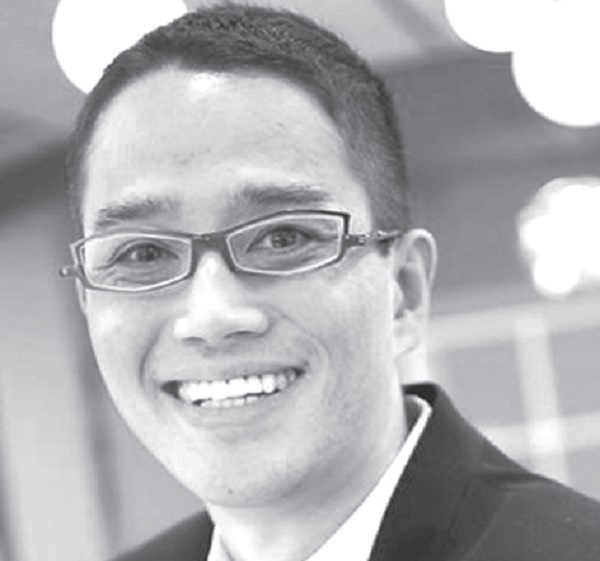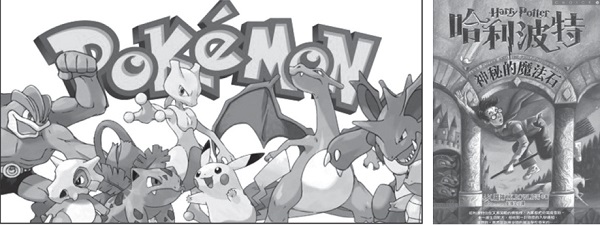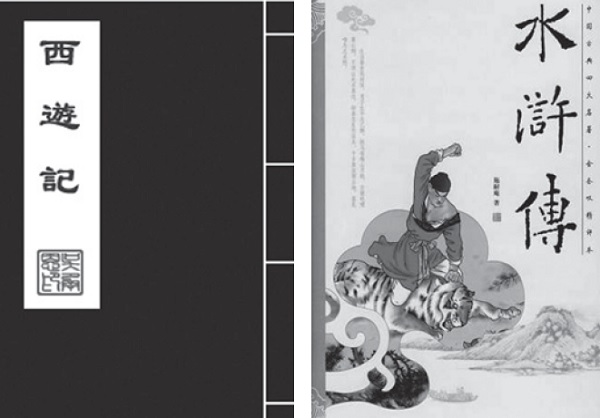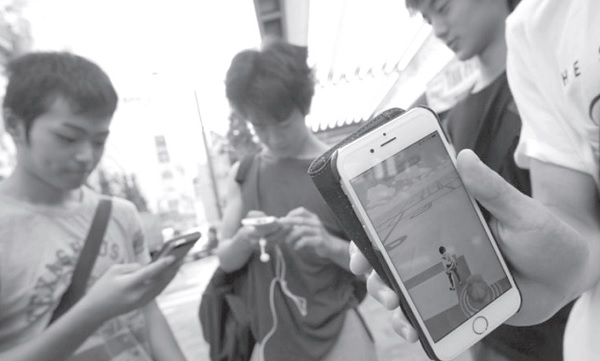Complete Guide to Pokémon
Don’t miss any of them! (Gotta Catch 'Em All!)

Whether we oppose or agree with the "Pokémon" game is not the most important thing. What is important is whether we pay attention to the world around us, seek quietly before God, and learn how to take the first move in prayer?
Nintendo's augmented reality mobile game "Pokémon GO" has become popular all over the world. From a Japanese video game in the 1990s, it has developed across media and borders into comics, books, animations, movies, battle cards and peripheral products. Twenty years later, it has reached a higher level, spanning the real world and virtual reality in mobile games, allowing players to capture elves in the real world and compete with other "trainers".
If you have no interest in video games and have never heard of "Pokémon" or "Pokémon", it must be difficult to imagine how someone could unfortunately get into a car accident, fall off a cliff, or rashly enter a sparsely populated suburb to find treasure. Tribulation.

▲"Pokémon" creator Satoshi Tajiri.
"Pokémon" also made Taiwan appear on the American Time magazine website - when a rare Pokémon appeared in Beitou District, hundreds of players with their heads lowered and staring at their phones instantly poured into the intersection and walked quickly in the same direction, " Scenes like this only occur during marathon races, or when people want to escape alien attacks or terrorist attacks."
At this time, relevant reports began to appear on Christian social networking sites and discussion groups. One of the rumors misquoted a fabricated article, saying that "Pokémon" was deliberately created by the original creator Satoshi Tajiri based on anti-Christian ideas. Some parents I was shocked when I saw the words "antichrist" and quickly retweeted it, spreading falsehoods and causing a panic.

▲"Pokémon" also made Taiwan appear on the American Time magazine website: "Scenes like this only occur during marathon races, or when people want to escape alien attacks or terrorist attacks."
Apart from false rumors, Christians have two polar opinions on "Pokémon". Some say it was created in traditional Japanese culture and therefore belongs to the antichrist class; Went to the church to “hunt for treasure”. Both the opponents and the supporters cited the Bible and were clear-cut. Are Pokémon the Enemy of Christians? Or a partner?
Christians on the opposing side are upright and believe that we should be "sanctified" (John 17:15-19); on the other side, Christians are sincere and advise: "I will be all things to all men, and no matter what, I will save them." " (1 Corinthians 9:22) Others believe that Christians should act according to their conscience, because "all things are lawful, but not all things are beneficial. All things are lawful, but not all things edify." (Brothers 1 Corinthians 10:23-33)
Among political forces, there are generally conservatives, liberals, and centrists; among Christian beliefs, there are also conservatives, liberals, and the majority of those in the middle. And you? What do you think?
Those who are good at defense are hidden under the Nine Earths ("Sun Tzu's Art of War - Military Form")
Christian conservatives often point out anti-Christ things, such as TV movies, pop music, dancing, Starbucks logo, "The Da Vinci Code", "Harry Potter" book series, etc. "Pokémon" is tainted with traditional Japanese beliefs. Of course Antichrist is untouchable at all.
Conservatives inherit the desert fathers of the early church and the monks of the Middle Ages. They strive to maintain pure beliefs and never be contaminated with any unclean things. Their spirit is very admirable. The only debatable aspect is that the interpretation of "unclean" has actually been influenced by culture. In modern times, Christianity was mainly interpreted by European and American culture, so the "unclean things" in popular culture should also be defined in European and American culture first. If "Pokémon" is anti-Christ, wouldn't "Dream of Red Mansions" be even more anti-Christ? The protagonists have all become monks. By analogy, the protagonist of "Water Margin" descends from the stars, "Journey to the West" records monks seeking scriptures, and Jin Yong's martial arts expounds the essentials of Buddhism. Naturally, they all fall into the category of Antichrist.

▲Fantasy novels such as "Harry Potter" and "Pokémon" are considered unreadable books by many conservative Christians.

▲There are strong elements of Buddhism and Zen in Chinese classic literary novels.
Hermits are highly respected in traditional Chinese culture. They value morality, do not seek fame or fortune, do not compromise on integrity, are indifferent and noble, and would rather retreat to the mountains and forests than compromise with political reality. They are somewhat similar to Christian conservatives. The admiration of hermits can be traced back to Confucius, who said, "A basketful of food and a ladle of drink, in a back alley. People cannot bear the worries, but they will not change their happiness when they return." Confucius concluded: "It is a wise man to return home!"
There are also Confucius chatting with his disciples about their ambitions. Zilu wants to govern the country, Ranqiu wants to govern the city, and Gongxi Chi wants to govern etiquette. But the most praised by Confucius is Zeng Dian's leisurely and leisurely poem: "In late spring, spring clothes are ready. Those who are crowned five or six "People, six or seven boys, bathed in Yi, danced in the wind, and returned chanting." Today, according to Confucius, whether you aspire to be elected president, become mayor, or be a municipal assistant, it is better to do it on Easter. Put on your spring clothes, go to a hot spring resort with a group of adults and children to take a bath, blow in the air, and go home singing songs.
The sage Confucius paid attention to the moral sentiments of a gentleman, yearned for a simple life without having to bow to reality, and had a hermit style. He has always played an important role in Chinese culture. Tao Yuanming, a reclusive poet of the Jin Dynasty who "didn't give up for five buckets of rice", resigned from office and returned to his hometown, where he "picked chrysanthemums under the eastern fence and saw the Nanshan Mountain leisurely". His book "The Peach Blossom Spring" became the ideal society longed for by scholars of all ages.
Could it be that the admiration for hermits that has been cultivated over thousands of years has made Chinese Christians particularly prone to praising conservatives? When we evaluate whether popular culture will hurt or help Christianity, should we think more deeply and consider whether such decisions are based on the Bible and prayer, or are they invisibly influenced by traditional culture?
In addition, once the defensive skills are practiced too well, will it become unintentionally conservative and exclusive, and become a habit without realizing it? American Christians have traditionally supported the Republican Party, but at the 2016 Republican National Convention, most of the attendees were white Europeans. On the contrary, the Democratic Party emphasized diversity and inclusion, and many racial representatives attended or gave speeches at the national convention. Shouldn’t tolerance be a Christian specialty? When we are determined to keep our faith pure, will it create unexpected blind spots?

▲There are crowds of people catching treasures everywhere - people in Toronto, Canada gathered in front of the CN building to catch treasures.
Those who are good at attacking move in the nine heavens ("Sun Tzu's Art of War - Military Form")
Christian liberals advocate embracing and utilizing new things and technologies. They open the doors of churches, provide charging stations and wireless Internet access, and advertise at the door of the church: "There is a "Pokémon" gym inside" or "Welcome to the "Pokémon" Supply station"!
Southwestern Baptist Theological Seminary in Texas, USA, discovered that the campus has both a gym and a supply station. They happily held a lure party on campus, installed a "Pokémon" trap module, and sprinkled cherry blossom petals to increase rarity. The possibility of elves appearing has brought many young people to campus, and they swore boldly to the theme song of "Pokémon". These young people will "not let any of them go!" (Gotta Catch 'Em All!). This is really a modern version. The mantis stalks the cicada, with the oriole behind - young people hope to capture the elf, and the church hopes to capture the hearts of young people.
Christian culture writer Andy Crouch gave a speech in 2008, mentioning that among the Harvard library collections, from 1455 when the Gutenberg Bible was printed to 1900, there was not a single book in the title that contained the words "change the world"; in 1900- In the 1980s, a very small number of book titles began to mention "changing the world"; however, in the 1990s, there were already more than a hundred book titles with these words. It is estimated that before the end of 2010, there will be more than 200 books named "Changing the World".
The audience couldn't help but smile at this time. Yes, it seems easy for millennial Americans to connect a group of like-minded people to change the world through the infinite power of the Internet and the strong culture of English. The Internet has opened people's eyes to see that the world is full of injustice, and we really need to change it! Didn't Warren Buffett also call on many billionaires to take "The Giving Pledge" (The Giving Pledge), aiming to redistribute wealth concentrated in the hands of a few people, help poor people, and change the world?
Paying attention to action and changing the world is not just a contemporary trend. The Yasheng Mencius advocated that "the people are the most valuable, the country is second, and the king is the most important", "Young people are as young as people, and old people are as old as people." The poet Du Fu He lamented that "there are tens of thousands of vast buildings, and the great shelter makes the poor people all over the world happy." This is an example for Chinese people of all generations to follow.
Contemporary liberal and activist believers are very busy. There are too many diverse and overwhelming opportunities for donations, volunteer work, and charity, and there are too many new technologies that can be applied. But when we embrace new technologies and add an action item to our to-do list, is this an instinctive reaction to the trends of the times? Or is it based on the Bible and a decision made after listening to God in prayer?

▲New Yorkers come out to catch treasures at night.
Anyone who is on the battlefield first and is waiting for the battle is lost; whoever is behind the battlefield and is eager for the battle is tired ("Sun Tzu's Art of War: Real and Virtual")
In fact, when faced with new technologies or pop culture such as "Pokémon", whether we condemn and avoid them, or "learn from the foreigners' skills to defeat the foreigners," we may be without thinking and based on tradition. To define and judge their merits according to culture or the trend of the times, not necessarily based on careful consideration before God. At the same time, whether you choose to abandon or accept, you are just trying to find a way out of trouble, not taking the initiative.
Whether we oppose or agree with "Pokémon" is not the most important thing. What is important is whether we pay attention to the world around us, seek quietly before God, and learn how to take the first step in prayer? Although we need to listen humbly to each other, it is not actually the most important thing whether other believers agree or disagree with our ideas. What is important is that what I care about most is what other believers think? Or is it God’s idea?
The dominant culture in the New Testament era was Greek culture. Paul wrote apostolic letters in Greek and preached with a group of loyal apostles, "turning the world upside down" (Acts 17:6). Although it angered Jewish leaders everywhere at the time, it also allowed Christianity, which originally had only a small group of Jewish believers, to sweep across Europe in hundreds of years.

▲Young people in Tokyo, Japan catch treasures.
Since taking office, Pope Francis has challenged many traditions, bravely responded to the issues of the times, and is not afraid of causing controversy within the Holy See. "I would rather the church be full of scars than be complacent." He believes that the church has gone too far on the issues of homosexuality and abortion, and believes that homosexuals should not be judged. Instead, they should humbly apologize and seek forgiveness for marginalizing them for many years. He was the first pope to express concern about climate change and also took a softer view on contraception. Under the leadership of the Pope, the Catholic Church and the Armenian Traditional Church gradually resolved their differences, and the Vatican also began dialogue with the atheistic Communist Party of China.
In Jin Yong's novels, there is a sword discussion in Mount Hua, and the five best swordsmen in the world are selected. First there is the supernatural power among the Eastern Evil, Western Poison, the Southern Emperor and the Northern Beggar, and then there is the Naughty Boy among the Southern Monk and the Northern Hero. Half of them practice martial arts in seclusion and do not want to get involved in worldly affairs; the other half aspires to the Central Plains, using their advanced martial arts to fight for justice and govern countries, gangs, and cities. It is with such different and wonderful characters that "Legend of the Condor Heroes" and "The Legend of the Condor Heroes" can have such fascinating plots.
There are forwards, defenders, and goalkeepers in the game, but not everyone occupies the same position. Defense is important, but if you can only defend but not attack, you will never score; because the only way to score on the court is to attack in the opponent's half. Offense is important, but if you can only attack but not defend, no matter how many points you score, your opponent will still be able to catch up.
Therefore, there is a time to be holy, and a time to be a certain person to whom we are. We are all soldiers of Christ, sharing the same armor in the war, and fighting a good battle together. Whether Christians are determined to compete in the Central Plains or have a secret love for the Peach Blossom Land, they should appreciate each other and complement each other to compose a thriving Christian movement.
 Pan Xiaomei, MBA, accountant, internal auditor, computer auditor. He once traveled around the world for work and now lives in California, where he works in the energy industry and plans traditional and renewable energy configurations.
Pan Xiaomei, MBA, accountant, internal auditor, computer auditor. He once traveled around the world for work and now lives in California, where he works in the energy industry and plans traditional and renewable energy configurations.
